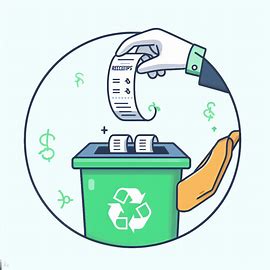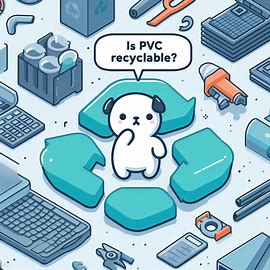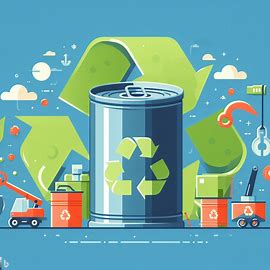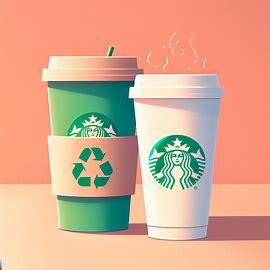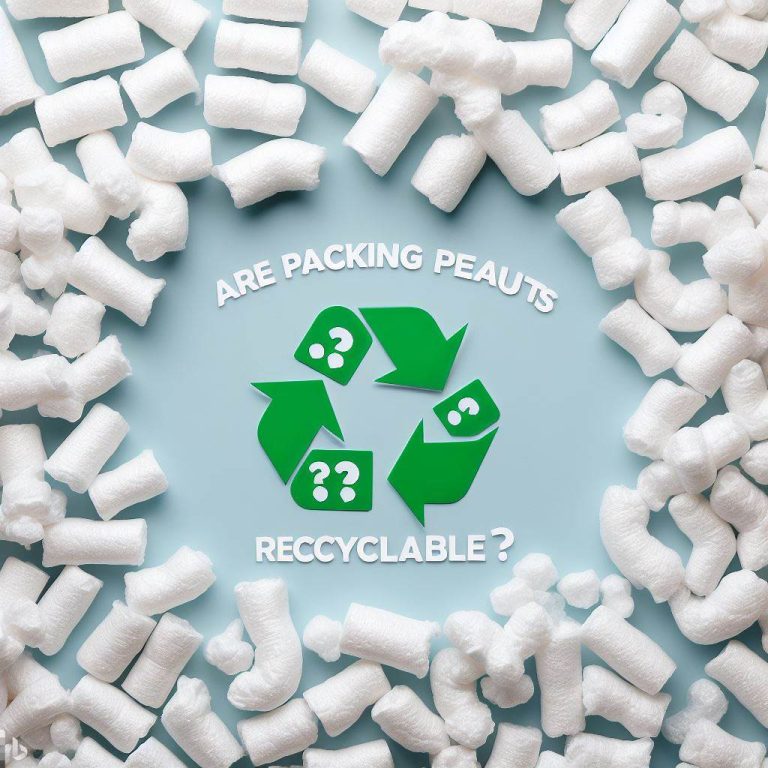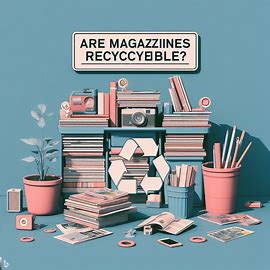Are Receipts Recyclable?
In the age of eco-conscious living, questions about the recyclability of everyday items continue to arise. One such item that often finds its way into our pockets and purses is the humble receipt. In this blog post, we’ll delve into the intricacies of receipt recycling, exploring whether these tiny slips of paper can be part of our sustainable efforts.
The Composition of Receipts:
Receipts, often produced through thermal printing, are commonly made of thermal paper—a type of paper coated with a chemical that changes color when exposed to heat. This coating is what allows the printer to generate text without the need for ink.
Are Receipts Recyclable?
The answer is not as straightforward as we might hope. While paper, in general, is recyclable, the unique composition of thermal paper poses some challenges. The coating often contains Bisphenol A (BPA) or its alternatives, chemicals that can be problematic in the recycling process.
Challenges in Receipt Recycling: Unraveling the Complexities
Receipts, those small slips of paper we encounter daily, pose unique challenges in the realm of recycling. While the concept of recycling paper is familiar, the composition and characteristics of receipts introduce complexities that hinder seamless recycling processes. Here are the key challenges in receipt recycling:
1. Thermal Paper Composition:
- Challenge: Most receipts are made from thermal paper, which is coated with a chemical that changes color when exposed to heat.
- Impact: The coating often contains Bisphenol A (BPA) or similar chemicals, which can complicate the recycling process. BPA can contaminate the recycling stream, affecting the quality of recycled paper.
2. Chemical Contamination:
- Challenge: The presence of BPA or alternatives in thermal paper can lead to chemical contamination in the recycling stream.
- Impact: When receipts with BPA are recycled with other paper products, it can introduce chemicals that may be undesirable in the recycled paper. This poses challenges for the quality of the recycled material.
3. Small Size and Sorting Issues:
- Challenge: Receipts are typically small and lightweight, making them prone to being overlooked or lost in the recycling process.
- Impact: The small size of receipts can lead to challenges in sorting at recycling facilities. They might be difficult to separate from other paper items, affecting the efficiency of the recycling process.
4. Coating Resistance to Breakdown:
- Challenge: The coating on thermal paper may not break down as effectively as traditional paper during the recycling process.
- Impact: This resistance to breakdown can affect the quality of recycled paper. The coated fragments may not integrate well with other paper fibers, potentially resulting in lower-grade recycled products.
5. Lack of Standardization:
- Challenge: There is a lack of standardization in the type of paper used for receipts, leading to variability in recyclability.
- Impact: Without a standardized composition for receipts, it becomes challenging for recycling facilities to implement consistent processes. This variability can complicate the separation and recycling of different types of thermal paper.
6. Consumer Awareness:
- Challenge: Many consumers may not be aware of the challenges associated with receipt recycling.
- Impact: Without awareness, individuals might not take steps to separate thermal paper from other recyclables or may inadvertently contaminate recycling bins with non-recyclable materials.
7. Limited Eco-Friendly Alternatives:
- Challenge: While there is a growing demand for eco-friendly receipt options, the adoption of sustainable alternatives is still limited.
- Impact: The slow transition to more sustainable receipt options, such as BPA-free thermal paper or digital receipts, prolongs the challenges associated with traditional thermal paper.
Addressing these challenges requires a multifaceted approach involving businesses, consumers, and policymakers. From adopting alternative materials to promoting awareness and responsible disposal practices, the journey to overcome the complexities of receipt recycling is a collective effort toward a more sustainable future.
Tips for Responsible Receipt Disposal: Navigating the Sustainable Path
Receipts, often overlooked in our daily waste considerations, can play a significant role in our efforts towards sustainability. While the challenges of recycling receipts exist, adopting responsible disposal practices can mitigate environmental impact. Here are some tips for responsible receipt disposal:
1. Separate Thermal Paper from Other Recyclables:
- Why: Prevents contamination of the recycling stream with BPA or similar chemicals found in thermal paper.
- How: Designate a separate container or envelope for thermal paper receipts. This helps ensure they don’t mix with other recyclable paper items.
2. Check Local Recycling Guidelines:
- Why: Recycling guidelines can vary, and some facilities may have specific recommendations for receipt disposal.
- How: Consult local recycling guidelines or contact your municipal waste management authority. They can provide information on whether and how thermal paper receipts should be recycled in your area.
3. Explore Digital Alternatives:
- Why: Reduces reliance on paper receipts altogether, minimizing the environmental impact.
- How: Opt for digital receipts when available. Many businesses now offer email or app-based receipts, providing a convenient and eco-friendly alternative to paper.
4. Use BPA-Free Thermal Paper:
- Why: Some businesses are transitioning to BPA-free thermal paper, reducing the environmental impact of receipt disposal.
- How: Encourage businesses to use BPA-free thermal paper for receipts. Support retailers and service providers adopting more environmentally friendly receipt options.
5. Avoid Contaminating Receipts:
- Why: Contaminants like food residues or non-recyclable materials can hinder the recycling process.
- How: Keep receipts clean and free from contaminants. If a receipt becomes soiled, consider composting it if suitable or placing it in the trash.
6. Educate Others About Responsible Disposal:
- Why: Spreads awareness and encourages a collective effort towards responsible receipt disposal.
- How: Share information about the challenges of receipt recycling and the importance of responsible disposal with friends, family, and colleagues. Encourage them to adopt similar practices.
7. Support Businesses with Sustainable Practices:
- Why: Promotes the adoption of environmentally friendly receipt options by businesses.
- How: Choose to support businesses that are committed to sustainable practices, including the use of eco-friendly receipt materials or digital alternatives.
8. Compost Soiled Receipts:
- Why: Provides an alternative disposal method for receipts with food residues.
- How: If a receipt is soiled with food residues and cannot be recycled, consider composting it if your local composting facility accepts paper products.
9. Lobby for Industry-Wide Changes:
- Why: Advocates for broader changes in receipt materials and disposal practices.
- How: Engage with local communities, businesses, and policymakers to advocate for the adoption of sustainable receipt options and improvements in recycling infrastructure.
10. Participate in Recycling Programs:
- Why: Supports community recycling efforts and promotes responsible waste management.
- How: Participate in local recycling programs and initiatives. Many communities offer specific collection events for paper and other recyclables.
By incorporating these tips into our daily routines, we can contribute to more responsible and sustainable receipt disposal practices. While the challenges of recycling receipts persist, individual actions collectively shape a path towards a greener and more eco-conscious future.
The Future of Receipts:
As environmental awareness grows, there is a push for more sustainable receipt options. Some businesses are transitioning to BPA-free thermal paper or exploring digital alternatives to reduce their environmental impact.
FAQ’s
1. Can thermal paper receipts be recycled?
- While thermal paper receipts are generally recyclable, they pose challenges due to the presence of chemicals like BPA. It’s essential to follow local recycling guidelines and separate them from other paper items.
2. How can I dispose of thermal paper receipts responsibly?
- To dispose of thermal paper receipts responsibly, separate them from other recyclables, keep them clean, and check local recycling guidelines. Consider digital alternatives and support businesses using eco-friendly receipt options.
3. Are there eco-friendly alternatives to traditional thermal paper receipts?
- Some businesses are adopting eco-friendly alternatives, such as BPA-free thermal paper or digital receipts. Supporting businesses with sustainable practices encourages the shift towards more environmentally friendly receipt options.
4. Can soiled receipts be recycled or composted?
- Soiled receipts, especially those with food residues, may not be suitable for recycling due to contamination. However, they can be composted if your local composting facility accepts paper products.
5. What should I do if my local recycling program doesn’t accept thermal paper receipts?
- If your local recycling program doesn’t accept thermal paper receipts, consider separating them from other recyclables and placing them in the trash. Alternatively, explore digital receipt options to reduce paper waste.
6. Why is separating thermal paper important for recycling?
- Separating thermal paper receipts is crucial to prevent the contamination of the recycling stream with BPA or similar chemicals. Keeping thermal paper separate ensures a higher quality of recycled paper products.
7. How can I encourage businesses to adopt sustainable receipt practices?
- You can encourage businesses to adopt sustainable receipt practices by expressing your preference for eco-friendly options, supporting businesses with environmentally conscious practices, and providing feedback on their receipt choices. Your choices as a consumer can influence positive changes in the industry.
Conclusion:
In the quest for a more sustainable lifestyle, understanding the nuances of seemingly trivial items like receipts becomes essential. While the recyclability of receipts presents challenges, responsible disposal practices and emerging eco-friendly alternatives indicate a potential shift towards a greener future.
As we navigate the complexities of receipt recycling, it’s clear that small changes in our daily habits can collectively contribute to a more sustainable world. Whether through responsible disposal or embracing digital alternatives, each choice brings us one step closer to a future where even the smallest paper trail leaves a positive environmental impact.

